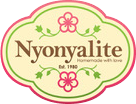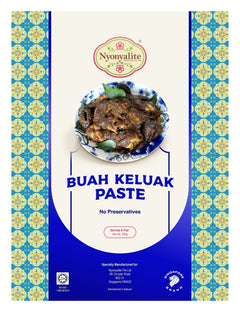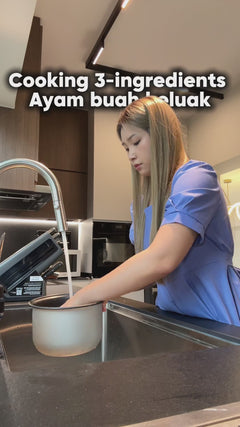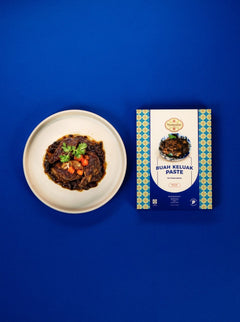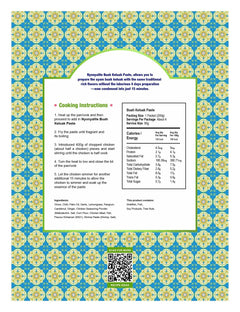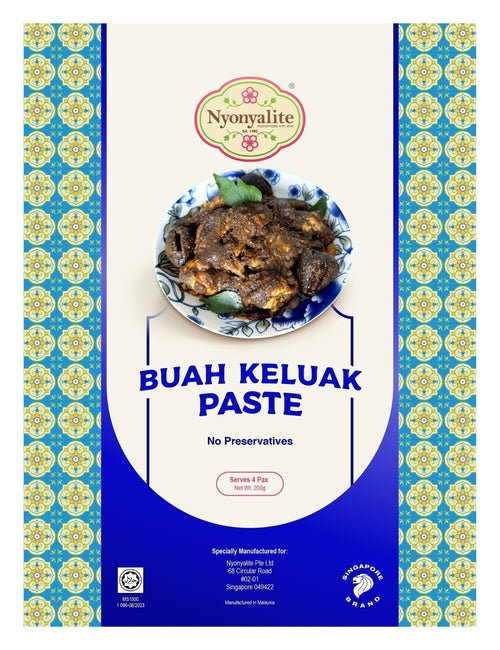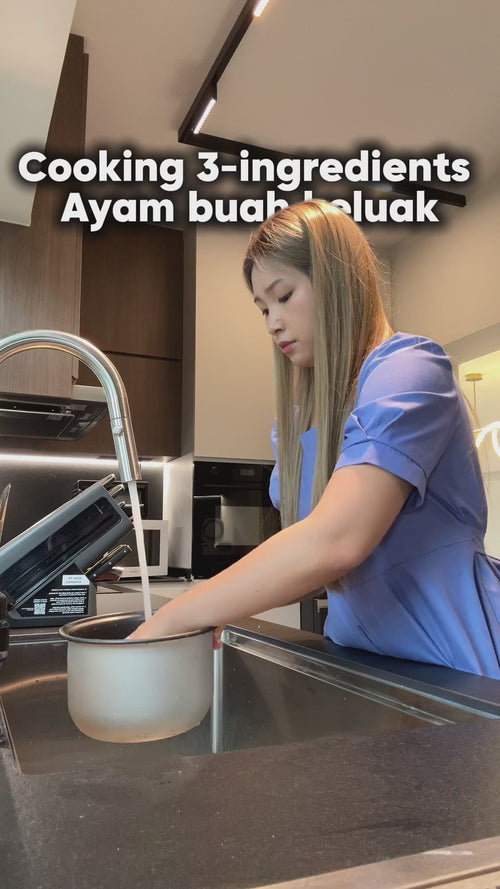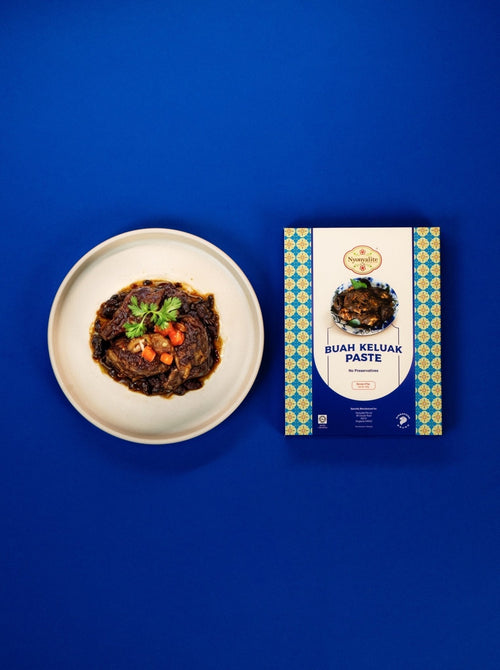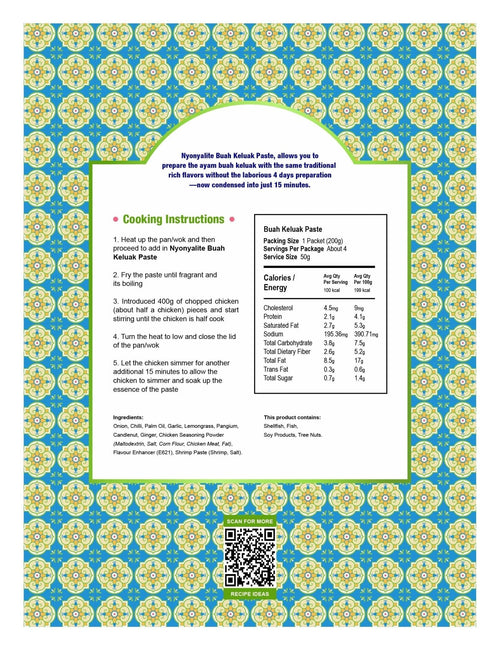Buy any 5 items for 5% off.
In the heart of Peranakan culture, food is much more than just sustenance—it’s an expression of love, care, and tradition. Peranakan cuisine, also known as Nyonya food, is famous for its rich flavors and intricate preparation processes. Each dish tells a story, reflecting the devotion and effort of the cook, often spanning several days. In this unique culture, food is a love language, a way to bring families together and show affection through hard work and dedication.
Take, for example, the iconic Nyonya dish Ayam Buah Keluak. This savory chicken dish with buah keluak (a unique black nut) is a staple of Peranakan cuisine. Preparing this dish is no easy feat—it requires soaking and scrubbing the nuts over several days before carefully stuffing them with a flavorful paste. The entire process can take up to five days, but the result is a rich, earthy dish that embodies the deep love and care of the one who made it.
Another beloved dish is Pongteh, a comforting stew made with pork or chicken, potatoes, and mushrooms. To achieve the best flavor, Pongteh is often cooked a day in advance so that the ingredients can fully absorb the spices and seasonings overnight. When served the next day, the flavors are rich and harmonious, reflecting the time and patience that went into preparing it.
In Peranakan culture, no detail is too small when it comes to food. Many Nyonya dishes involve the use of hand-pounded spices, painstakingly prepared using a mortar and pestle. This traditional method allows the flavors of the spices to fully develop, creating deeply aromatic and flavorful dishes. In Nyonya cooking, shortcuts are rarely taken. The process itself is a demonstration of love, especially when preparing meals for family gatherings.
Family traditions play a key role in Peranakan cuisine. What makes Peranakan food even more special is that each family often has its own version of a dish, passed down from one generation to the next. For example, one family’s Ayam Buah Keluak recipe might include a secret spice blend or a specific method for preparing the buah keluak nuts that is unique to them. Another family might have their own twist on Laksa, adjusting the balance of coconut milk and spices to their liking. Because of these differences, Peranakan cuisine is highly personalized and customized to each family’s preferences and traditions.
These family recipes are treasures, guarded and shared with loved ones, making them even more precious. Even within the same community, the same dish might taste slightly different depending on whose kitchen it came from. This personalization of food is a reflection of the deep connection between food and family in Peranakan culture. Each dish becomes a symbol of family identity, carrying the memories of ancestors and the tastes that were enjoyed by generations past.
In Peranakan households, the time of day when families gather around the dining table is cherished. Mealtimes, especially dinner, are often when families come together to connect, share stories, and enjoy the fruits of the day’s labor. Sharing food is an important aspect of Peranakan life, symbolizing unity and love. The dining table is usually filled with a spread of dishes, from spicy Sambal Belacan to comforting stews like Babi Pongteh. Each dish represents not just a meal but a loving gesture from the person who prepared it.
Asian culture, particularly within the Peranakan community, often expresses love through action rather than words. Unlike Western cultures, where verbal expressions of affection are more common, in Asian households, love is often shown through acts of service. A mother might wake up early to prepare her child’s favorite Nyonya breakfast, such as Kuih Seri Muka, a two-layered steamed cake made with glutinous rice and coconut milk. A grandmother might spend hours preparing Nyonya Laksa, carefully balancing the spices and coconut milk to create the perfect bowl of noodles. These acts of service are expressions of love, demonstrating care without needing to say the words aloud.
Another beautiful example of love through food is during special occasions like Chinese New Year or weddings, when Peranakan families come together to prepare elaborate feasts. Dishes like Otak-Otak, a steamed fish cake wrapped in banana leaves, or Kueh Pie Tee, crispy pastry cups filled with sweet turnips and prawns, are made in large batches to be shared among family and friends. Preparing these dishes is often a group effort, with family members coming together to cook, chat, and bond over the food they are making.
Even something as simple as offering a plate of Nyonya Achar, a spicy pickled vegetable dish, can be a gesture of care. It’s a way of saying, “I’m thinking of you” without needing to say the words aloud. For many Peranakans, showing love means taking the time to prepare food that will nourish and comfort those they care about.
In the end, Peranakan cuisine is more than just food—it’s a love language that connects generations, honors tradition, and strengthens bonds within the family. Whether it’s the five-day preparation of Ayam Buah Keluak, the overnight cooking of Pongteh, or the personalized family recipes passed down through generations, each dish reflects the love and dedication of the cook. Through food, the Peranakan community expresses love, respect, and care for one another, proving that actions truly do speak louder than words.
